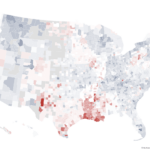Volume isn’t the problem. Margin is. Most firms can add agents and transactions; fewer can protect profitability when splits, lead costs, and operating complexity creep. If you lead a brokerage, you already see it in your P&L: higher platform spend, uneven agent productivity, and a widening gap between top-line growth and net. Protecting brokerage margin in 2025 requires surgical operating discipline, not motivational slogans.
Below are six decisive moves we’re implementing with top operators through RE Luxe Leaders® and RELL™. They’re built for leaders who manage by unit economics, not headlines. Adopt them as a system, not one-off fixes.
1) Make Margin a Design Constraint, Not an Outcome
Most firms treat profitability as a trailing result. That’s how margin erodes. Design target contribution margins by agent cohort and enforce them at the point of comp, platform allocation, and lead investment. Build a 12-month rolling model that shows, by cohort, gross margin per deal, platform cost per deal, and contribution after overhead allocation.
What the data says: Industry volatility persists, and cost pressure will remain elevated across tech, labor, and marketing. See Emerging Trends in Real Estate 2024 for macro risk drivers that necessitate tighter operating discipline.
Operator directive:
- Publish target contribution margins by cohort (e.g., top 10%, core producers, growth cohort).
- Tie recruiting offers, lead budgets, and platform access to those margin thresholds.
- Stop deals that don’t clear contribution targets, regardless of volume optics.
2) Redesign Comp and Platform Pricing to Pay for Profitability
Comp architecture is your most powerful margin lever. If your top 20% capture too much economics without offsetting platform burden, your mid-tier subsidizes the machine—and your brokerage margin collapses.
Move away from one-size split grids toward margin-banded compensation paired with explicit platform pricing. Price the platform by service level (e.g., ISA, marketing ops, TC, coaching). Use credits or rebates for profitable behaviors: listings taken, sphere conversion, and adoption of firm systems that improve conversion.
What the data says: Small changes in pricing mechanics can drive outsized profit impact. McKinsey’s analysis shows a 1% improvement in realized price can translate to 8–12% in operating profit—principle applies to split and fee design. See The power of pricing.
Operator directive:
- Introduce service-tier fees that align with real, delivered value; stop gifting premium services to negative-contribution agents.
- Implement margin gates at each comp tier—promotion requires proven unit economics, not just GCI.
- Quarterly re-forecast comp impact; adjust tiers to preserve firm-level contribution targets.
3) Centralize Demand Gen and Kill Low-Yield Spend
Lead inflation is real. Uncoordinated agent-level buying amplifies waste. Centralize media buying, lead routing, and measurement. The firm owns demand gen and allocates budget where conversion is proven, not where vendor narratives are loudest.
Tie budget to channel-level CAC, speed-to-lead, appointment rate, and 90-day contract rate. Assign platform costs back to agents via internal clearing rates. If a channel can’t clear your contribution hurdle, pause it.
What the data says: Operators that standardize digital execution and measurement outperform peers in cost-to-serve and revenue conversion. See Deloitte’s 2024 Commercial Real Estate Outlook for how disciplined data use drives operating leverage in real estate organizations.
Operator directive:
- Roll up ad accounts; remove agent-side discretionary spend that can’t be tracked to gross margin.
- Publish a channel scorecard weekly; reallocate budget within 72 hours based on conversion.
- Route leads to agents with proven speed-to-lead and show-up rates; reward with additional volume based on outcomes.
4) Engineer Productivity: Minimums, Ratios, and Role Clarity
Productivity isn’t a motivational issue; it’s a systems issue. Define and enforce firm-wide minimum standards for activity, pipeline hygiene, and listing velocity. Build a workforce plan that aligns agents and staff to throughput targets and eliminates role drift that drives cost without conversion.
Core ratios to manage:
- Listings-focused mix: minimum 55–60% of sides as listings for core producers.
- Manager span: 25–35 producing agents per sales leader, depending on platform complexity.
- Support leverage: 1 transaction coordinator per 8–12 pending files; 1 marketing ops per 30–40 active listings.
- Training cadence: 90-day onboarding to first closing, with cut points if standards aren’t met.
Operator directive:
- Publish and enforce minimum performance standards; exit those who won’t meet them.
- Concentrate resources on agents with repeatable pipelines; stop subsidizing perpetual rampers.
- Create a listings-first plan: seller lead capture, pre-listing process, and pricing governance.
5) Simplify the Stack and Reclaim Operating Leverage
Redundant tools, underused licenses, and bespoke team-level systems erode brokerage margin. Standardize on a single core stack: CRM, marketing automation, TC system, BI. Consolidate vendors and renegotiate multiyear contracts with usage-based tiers. The objective is fewer tools, deeper adoption, and clear enablement.
What the data says: Persistent cost inflation and capital discipline force operators to extract more from existing assets. PwC and ULI highlight operational efficiency as a recurring theme for 2024 and beyond in Emerging Trends in Real Estate 2024.
Operator directive:
- Cut tools with <40% monthly active usage or ambiguous revenue impact.
- Document and enforce one way of working across CRM, listing launch, and TC—no team exceptions that degrade data integrity.
- Stand up a lightweight BI dashboard tied to your unit economics; expose conversion and margin by cohort weekly.
6) Control Risk and Cash Like an Operator, Not a Sales Org
Margin isn’t secured until cash is banked and risk is contained. Build a weekly cash cadence and a 13-week cash flow model. Use it to time hiring, vendor payments, and growth bets. Reduce fall-out risk with compliance automation, pre-close checklists, and centralized TC quality control. Every failed file is a direct hit to brokerage margin.
Operator directive:
- Adopt a 13-week cash forecast; review variance every Friday with your controller.
- Negotiate supplier terms; convert fixed costs to variable where possible (per-transaction TC, marketing).
- Standardize E&O practices and contract review; track fallout reasons and eliminate systemic errors that degrade gross margin.
What This Looks Like in Practice
Across top firms, the pattern is consistent: margin by design, not by chance. They publish target contribution by cohort, price their platform transparently, centralize demand gen, enforce productivity floors, streamline the stack, and run cash weekly. They don’t chase vanity volume. They allocate capital to repeatable systems and exit unprofitable complexity quickly.
If you need a blueprint to implement the six moves, review our latest RE Luxe Leaders® insights and engage the RELL™ private advisory for operator-grade execution. This is about building a firm that holds line on profitability through market cycles.
Conclusion
2025 won’t reward undisciplined scale. It will reward operators who treat brokerage margin as a non-negotiable constraint and align every decision—comp, platform, recruiting, and spend—to that constraint. The six moves above form a single operating system: design margin, price for it, generate demand efficiently, enforce productivity, simplify the stack, and run cash and risk with rigor. You don’t need more tools. You need cleaner rules.





